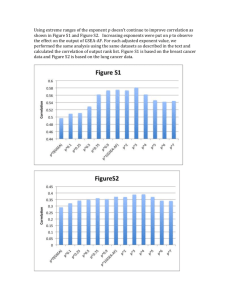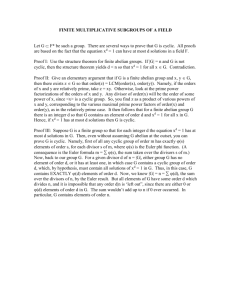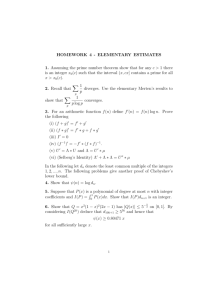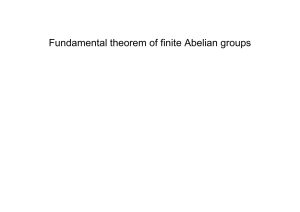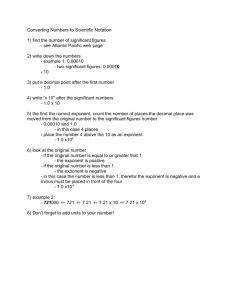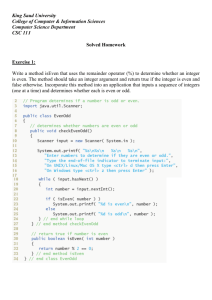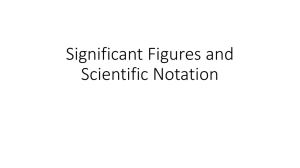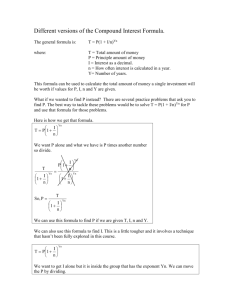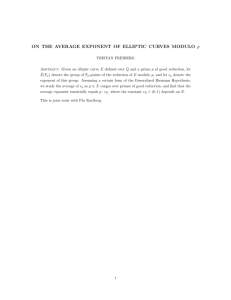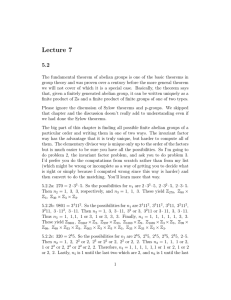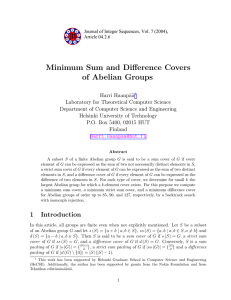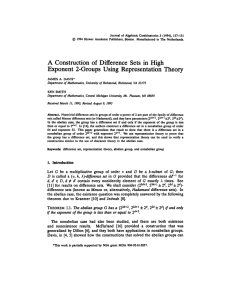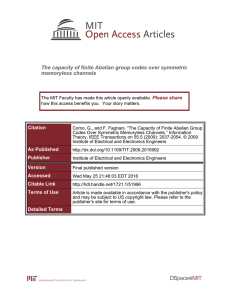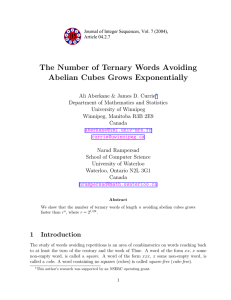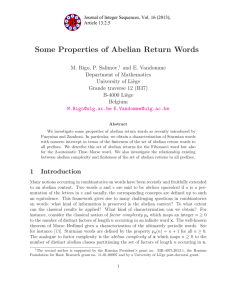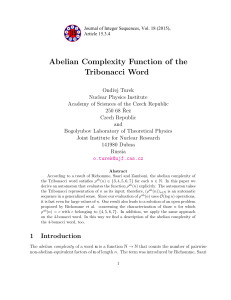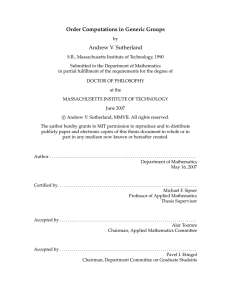12 F Modern Algebra 1 - Assignment 8
advertisement
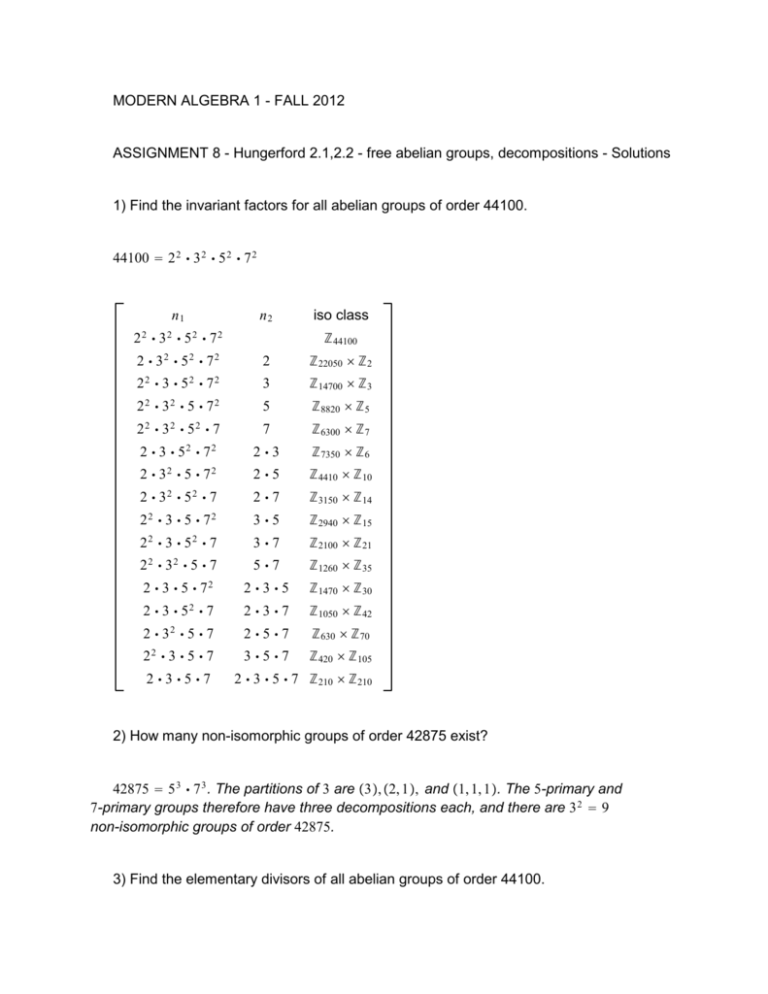
MODERN ALGEBRA 1 - FALL 2012 ASSIGNMENT 8 - Hungerford 2.1,2.2 - free abelian groups, decompositions - Solutions 1) Find the invariant factors for all abelian groups of order 44100. 44100 2 2 3 2 5 2 7 2 n1 n2 22 32 52 72 2 2 iso class 44100 2 2 22050 2 22 3 52 72 23 5 7 3 14700 3 2 5 8820 5 22 32 52 7 2 2 2 3 57 7 6300 7 2 23 7350 6 2 32 5 72 25 4410 10 2 32 52 7 2 235 7 27 3150 14 2 35 2940 15 22 3 52 7 37 2100 21 2 3 57 57 1260 35 2 3 5 72 235 1470 30 235 7 237 1050 42 2 32 5 7 257 630 70 357 420 105 2 2 357 2 2 2 2 2 357 2357 2 3 5 7 210 210 2) How many non-isomorphic groups of order 42875 exist? 42875 5 3 7 3 . The partitions of 3 are 3, 2, 1, and 1, 1, 1. The 5-primary and 7-primary groups therefore have three decompositions each, and there are 3 2 9 non-isomorphic groups of order 42875. 3) Find the elementary divisors of all abelian groups of order 44100. 44100 2 2 3 2 5 2 7 2 , so the possibilities are: p2 p3 p5 p7 2 4 1, 1 2 2 2 9 1, 1 3 3 2 25 1, 1 5 5 2 49 1, 1 7 7 You can concatenate one group from each prime to recover the sixteen given in problem (1). For example 7 7 5 5 3 3 2 2 210 210 by the usual argument. 4) Find the elementary divisors of all abelian groups of order 42875. 42875 5 3 7 3 . So p5 p7 3 125 2, 1 25 5 1, 1, 1 5 5 5 3 343 2, 1 49 7 1, 1, 1 7 7 7 Concatenating one group from each prime gives the nine non-isomorphic possibilities. 5) Find the smallest order for an abelian group giving ten isomorphism classes. Obviously, we will want the smallest elementary divisors we can find. No integer has exactly ten partitions, so using one prime is out. However, 4 has five partitions and 2 has two partitions, so if we arrange for |G| 2 4 3 2 144, there will be five candidates from the 2-primary group and two candidates from the 3-primary group, giving 10 non-isomorphic groups. 6) The exponent of a group G is the smallest integer n for which g n e G , for all g G. Show that: (i) every finite group has a finite exponent The order of an element g divides the order of its group, so the set of all natural numbers n for which g n e G is not empty (it is at least |G|). By well-ordering, there is a least such integer that satisfies the condition. This would be the exponent of G. (ii) an infinite group may have a finite exponent Let G n1 2 n . This is the direct sum of copies of 2 . Clearly |G| , but its exponent is 2. Add any element to itself and all the ones become zeroes. The zeroes stay zeroes.
